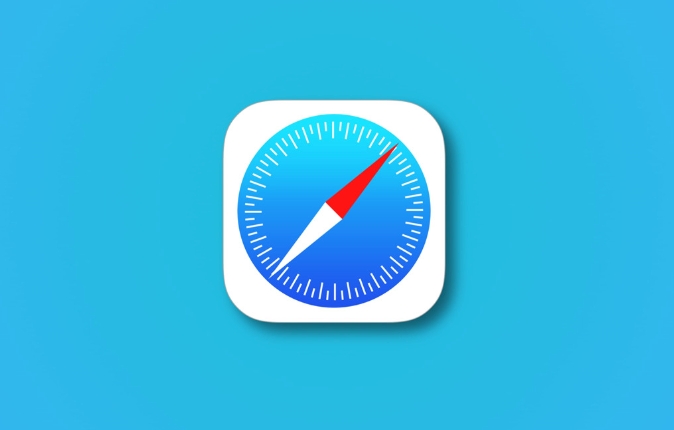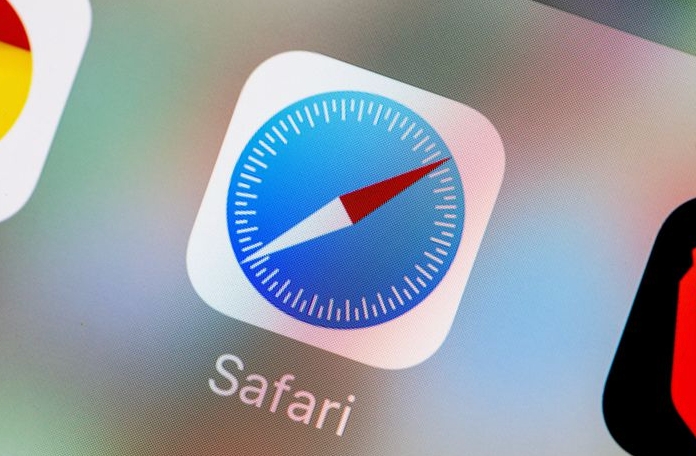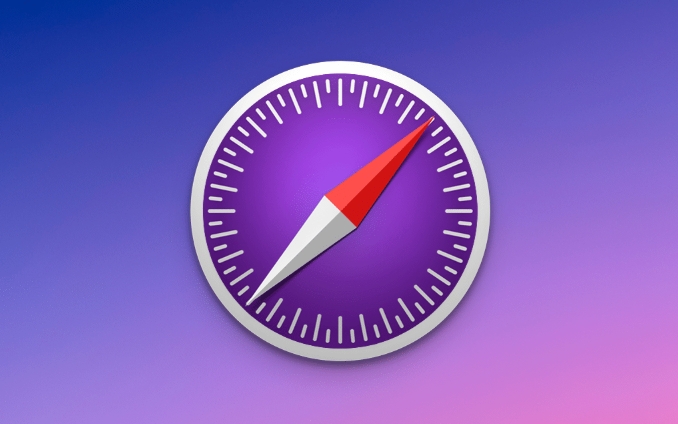 Computer Tutorials
Computer Tutorials
 Browser
Browser
 How to manage permissions for websites in Safari on a granular level?
How to manage permissions for websites in Safari on a granular level?
How to manage permissions for websites in Safari on a granular level?
To finely manage website permissions in Safari, you can follow the following steps: 1. View and manage permissions such as camera, microphone, etc. one by one in the "Website" tab of Safari preferences in macOS or in the "Settings>Safari>Permissions" on iOS; 2. Make Safari re-prompt authorization by clearing specific website data or resetting permissions; 3. Use the invisible browsing mode to prevent the website from saving permissions for a long time. Through these methods, users can achieve precise permission control over different websites.

Safari on macOS and iOS give you tools to control website permissions, but if you're looking for granular management—like allowing some sites access to the camera while blocking others—it's doable, though not always obvious. Here's how to take more precise control.

Check and Manage Permissions in Settings
The main place to manage website permissions is within Safari's preferences. On a Mac, go to Safari > Preferences > Websites tab. On iOS or iPadOS, it's under Settings > Safari > Permissions (or similar).
Here, you can see a list of permissions like Camera, Microphone, Location, Notifications, and more. Clicking each category shows which websites have been granted access.

- You can individually allow or deny a site by selecting it and choosing “Deny” or “Allow.”
- If a site isn't listed yet, it means it hasn't requested permission yet—you'll be prompted when it does.
This method works well if you want to block a specific site from using your camera, for example, without affecting all other sites.
Clear Site Data to Reset Permissions
If a site has already asked for permission and you want to start over—say, because you accidentally denied access and now want to re-prompt Safari—you can reset its permissions manually.

On Mac:
- Go to Safari > Preferences > Privacy
- Click Manage Website Data
- Find the site in the list, select it, and click Remove or Remove All
- Then also click Reset Permissions at the bottom if needed
On iOS/iPadOS:
- Go to Settings > Safari > Clear History and Website Data
- Confirm to wipe all stored permissions and cookies
After this, visiting the site again will trigger a fresh permission prompt, letting you choose again.
Use Private Browsing Mode to Block Persistent Access
If you don't want a site to remember your permission choices at all, use Private Browsing mode . In this mode, Safari doesn't save any permissions or cookies after you close the window.
- On Mac: File > New Private Window
- On iPhone/iPad: Tap the tab counter in the bottom-right corner, then tap the “ ” icon while in private browser
This is useful for one-off visits where you don't want to grant long-term access, especially for things like location or notifications.
Basically, Safari gives you enough control if you know where to look. It's not as fine-grained as some browsers' per-site settings, but with these steps, you can manage most common permissions fairly precisely.
The above is the detailed content of How to manage permissions for websites in Safari on a granular level?. For more information, please follow other related articles on the PHP Chinese website!

Hot AI Tools

Undress AI Tool
Undress images for free

Undresser.AI Undress
AI-powered app for creating realistic nude photos

AI Clothes Remover
Online AI tool for removing clothes from photos.

Clothoff.io
AI clothes remover

Video Face Swap
Swap faces in any video effortlessly with our completely free AI face swap tool!

Hot Article

Hot Tools

Notepad++7.3.1
Easy-to-use and free code editor

SublimeText3 Chinese version
Chinese version, very easy to use

Zend Studio 13.0.1
Powerful PHP integrated development environment

Dreamweaver CS6
Visual web development tools

SublimeText3 Mac version
God-level code editing software (SublimeText3)
 8 Ways to Reinstall Safari on iPhone
Sep 16, 2023 am 11:17 AM
8 Ways to Reinstall Safari on iPhone
Sep 16, 2023 am 11:17 AM
Web browsing is an essential function of mobile devices, and browsers facilitate it effectively. These browsers also support the installation of content blockers and other tools to personalize your browsing experience. Apple's iOS platform uses Safari as its default browser. In rare cases, you may find that Safari browser is missing from your device. If you encounter this situation, the following steps will guide you on how to restore it. Can you reinstall Safari on iPhone? Safari is a built-in application on iOS devices and cannot be deleted or uninstalled due to its protected system status. If the app seems to be missing from your device, you may be dealing with an error, or the app may be hidden for various reasons.
 Safari zoom issue on iPhone: Here's the fix
Apr 20, 2024 am 08:08 AM
Safari zoom issue on iPhone: Here's the fix
Apr 20, 2024 am 08:08 AM
If you don't have control over the zoom level in Safari, getting things done can be tricky. So if Safari looks zoomed out, that might be a problem for you. Here are a few ways you can fix this minor zoom issue in Safari. 1. Cursor magnification: Select "Display" > "Cursor magnification" in the Safari menu bar. This will make the cursor more visible on the screen, making it easier to control. 2. Move the mouse: This may sound simple, but sometimes just moving the mouse to another location on the screen may automatically return it to normal size. 3. Use Keyboard Shortcuts Fix 1 – Reset Zoom Level You can control the zoom level directly from the Safari browser. Step 1 – When you are in Safari
 How to disable private browsing mode in Safari on iPhone
Feb 23, 2024 am 08:34 AM
How to disable private browsing mode in Safari on iPhone
Feb 23, 2024 am 08:34 AM
Apple allows iPhone users to browse anonymously using private tabs on Safari. When "Incognito Mode" is enabled, Safari does not save the addresses of websites you visit, your search history, or Autofill information. If you use private browsing mode frequently in Safari, you may have noticed that the mode operates differently than other browsers. This article will detail how to disable Private Browsing Mode on iPhone and what happens when Private Browsing Mode is enabled when Safari is closed. How to Disable Private Browsing Mode on Safari Required: iPhone running iOS 17 or later. If you have found out how to enable and use private browsing in Safari
 How to update Safari on iPhone and Mac
Feb 05, 2024 pm 12:45 PM
How to update Safari on iPhone and Mac
Feb 05, 2024 pm 12:45 PM
Modern web browsers typically operate on fast release cycles. However, compared to common browsers such as Chrome or Firefox, Safari updates less frequently. Instead of releasing new versions every month or every few months like other browsers, it only gets updates a few times a year. This means there are relatively few new features and user interface changes for Safari. Updating Safari on iPhone and Mac Although Safari itself is an app, unlike other apps, Apple does not develop updates for Safari separately. Instead, Safari updates are bundled with operating system updates. This means that when you update your operating system, Safari will also get updated. This kind of
 How to automatically remove URL tracking parameters in Safari private browsing mode?
Jan 16, 2024 pm 05:21 PM
How to automatically remove URL tracking parameters in Safari private browsing mode?
Jan 16, 2024 pm 05:21 PM
Starting with iOS 17, iPadOS 17, and macOS Sonoma, Safari supports automatically removing tracking parameters from URLs in private browsing mode to prevent cross-site tracking. Apple calls this new feature Advanced Tracking and Fingerprint Protection, and it also works for links shared in the Messages and Mail apps, and even for regular browsing in Safari. How to set up Safari to automatically remove tracking parameters from URLs in private browsing mode: Open your iPhone, enter the Settings app, click Safari → Advanced → Advanced Tracking and Fingerprint Protection, and select All Browsing. Apple says that when tracking parameters are detected while browsing or copying a link, Safari will strip the identifying part of the URL and leave the rest
 How to Delete Frequently Visited Websites from Safari on iPhone
Jul 10, 2023 pm 04:41 PM
How to Delete Frequently Visited Websites from Safari on iPhone
Jul 10, 2023 pm 04:41 PM
By default, most iPhone users use Safari browser on their iPhone. They browse and visit different types of websites on Safari browser. Some iPhone users have reported that they are tired of seeing frequently visited websites on the splash screen after launching Safari on their iPhone. In order to change the appearance of the splash screen, you should edit it. If you wish to remove frequently visited websites from Safari, we are here with some simple steps explaining how to do it easily. How to Delete Frequently Visited Websites from Safari on iPhone Step 1: You should first launch the Safari browser on your iPhone. 2nd
 Safari missing on iPhone: Here's the fix
Apr 24, 2024 pm 04:50 PM
Safari missing on iPhone: Here's the fix
Apr 24, 2024 pm 04:50 PM
Can't imagine an iPhone without Safari. Since Safari is the default browser in all Apple devices, the lack of Safari browser may be an issue for you. Due to the lack of a default browser, links on Mail or Messages will not open in Safari. So, keep everything else and follow these instructions to get Safari back on iPhone. Fix 1 – Enable Safari in the Privacy Restrictions page Safari can be disabled or access restrictions from the iPhone’s Content Privacy page. Step 1 – Go to settings on your phone. Step 2 – In the main iPhone Settings tab, turn on Screen Time to turn it on. Step 3
 Translate web pages using Safari on iPhone: Set multiple translation languages
Mar 18, 2024 pm 10:13 PM
Translate web pages using Safari on iPhone: Set multiple translation languages
Mar 18, 2024 pm 10:13 PM
Previously, Apple added translation applications for iPhone and iPad, which can translate multiple different languages in real time. The Safari browser also integrates translation functions. With its web page translation feature, Safari automatically detects whether a web page needs to be translated based on the user's preferred language list. Translate web pages in Safari: Launch Safari on your iPhone or iPad and visit the web page in the language you want to translate. Click the "Size" button on the far left side of the address bar and select Translate in the drop-down menu. If you don't see this option, the webpage isn't compatible with Safari's translation feature, or the language isn't supported. To view the original, untranslated page, select from the options to the left of the address bar






